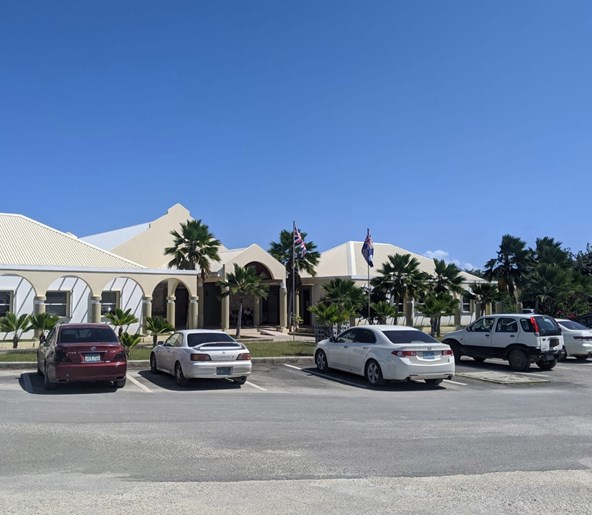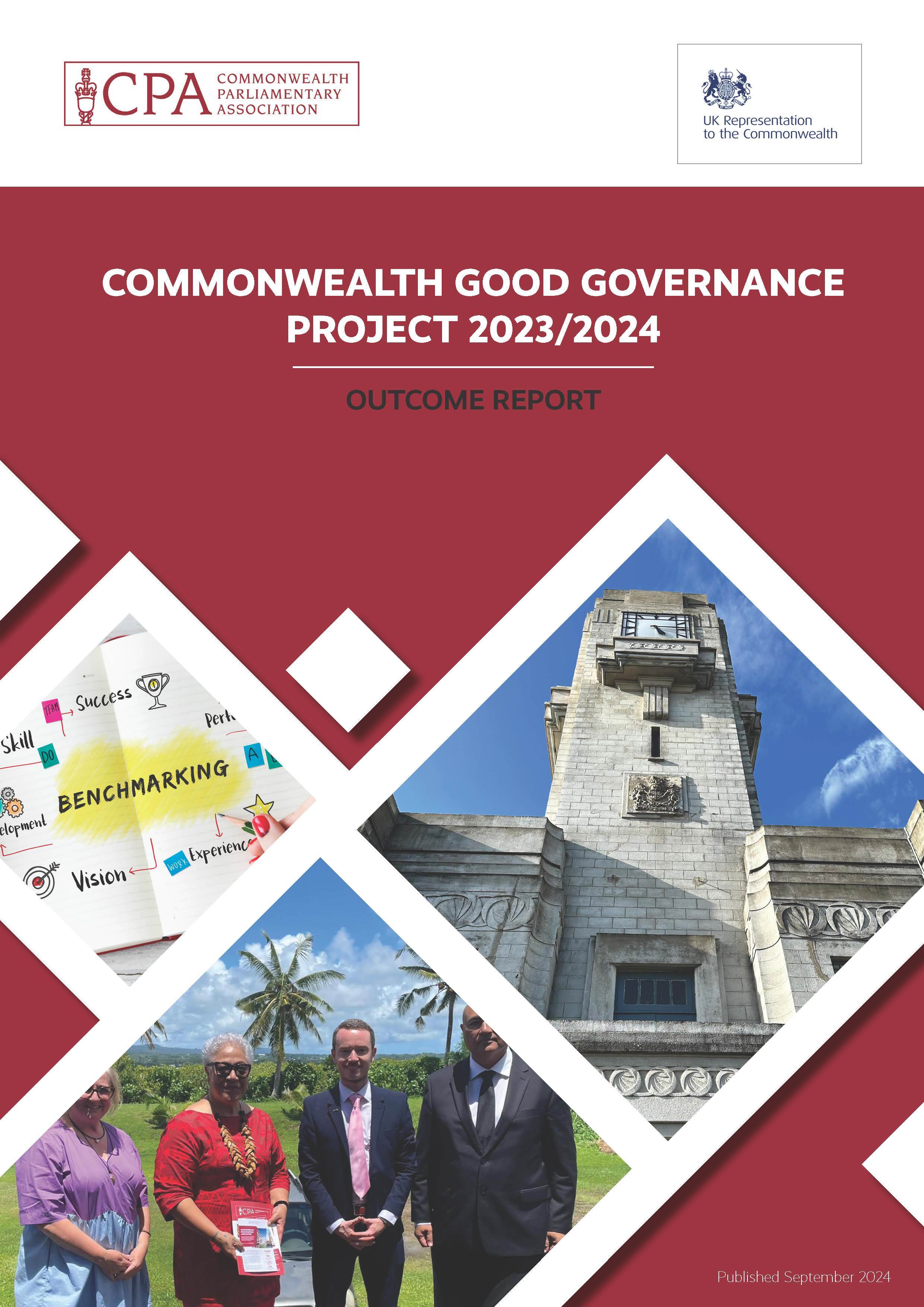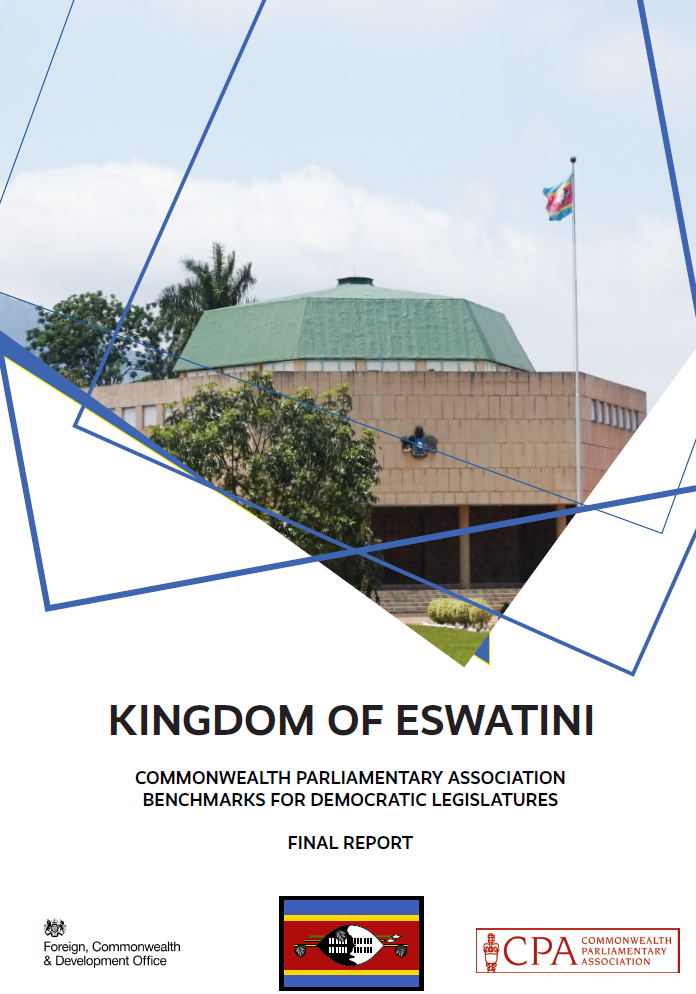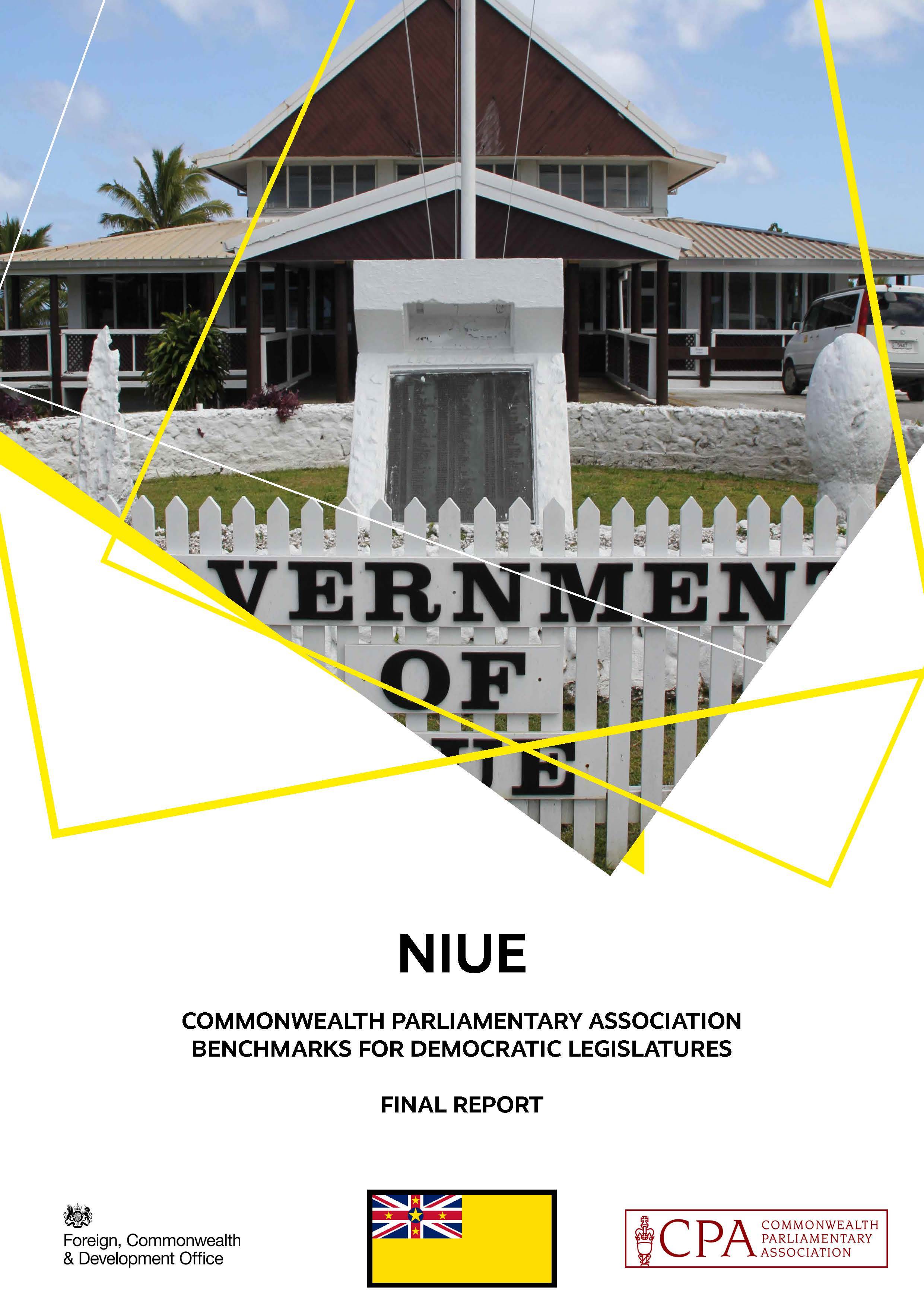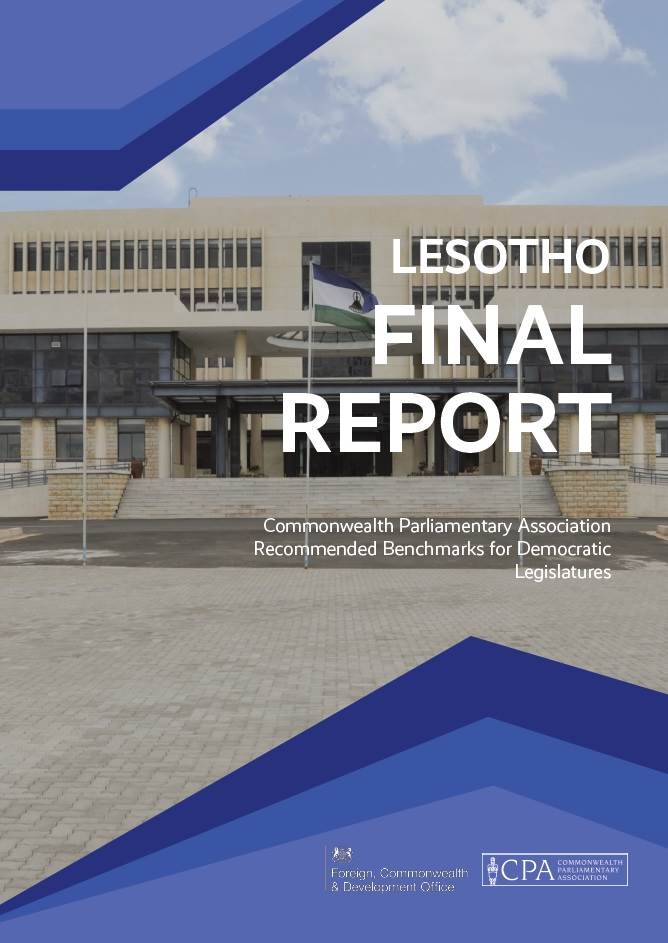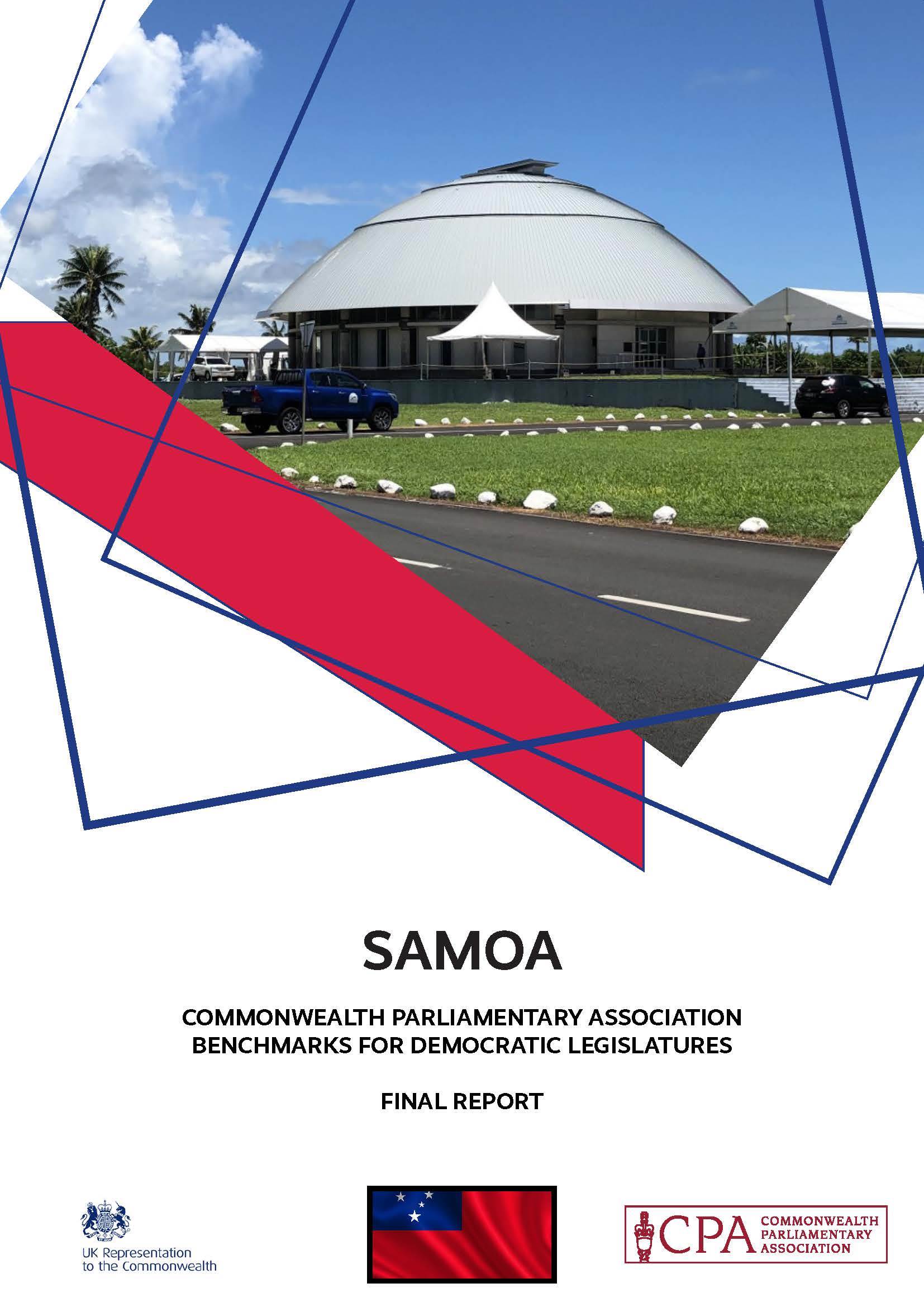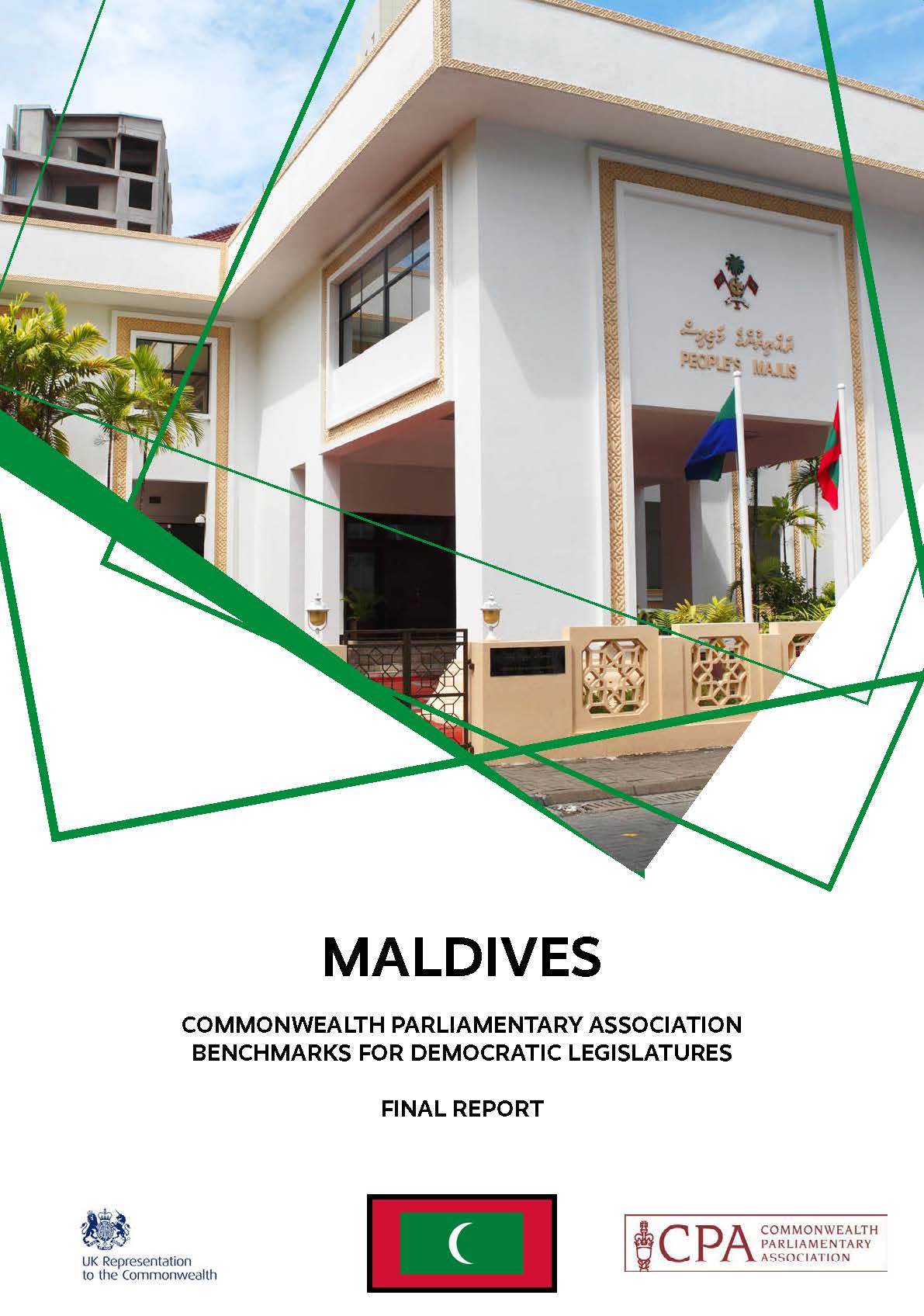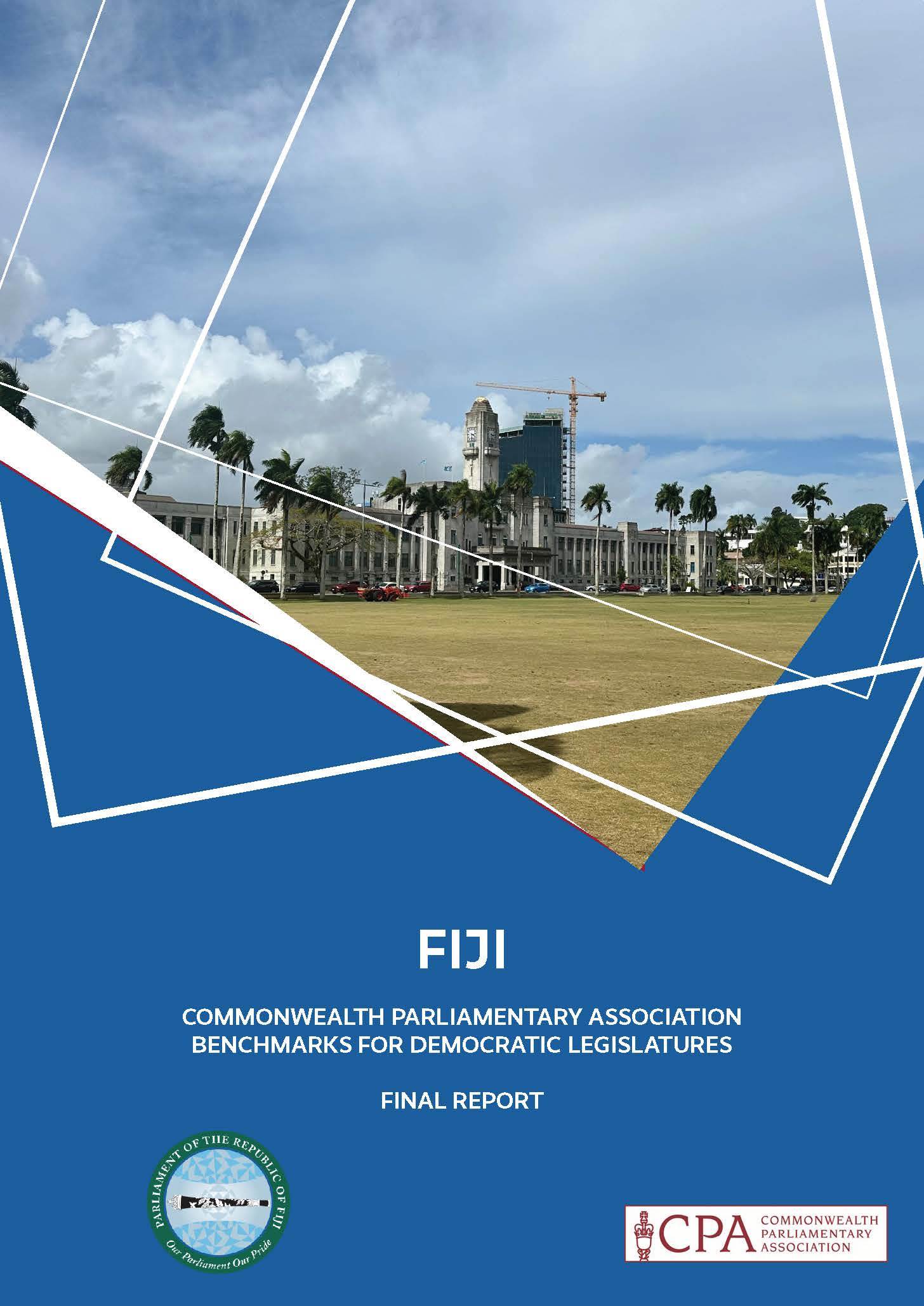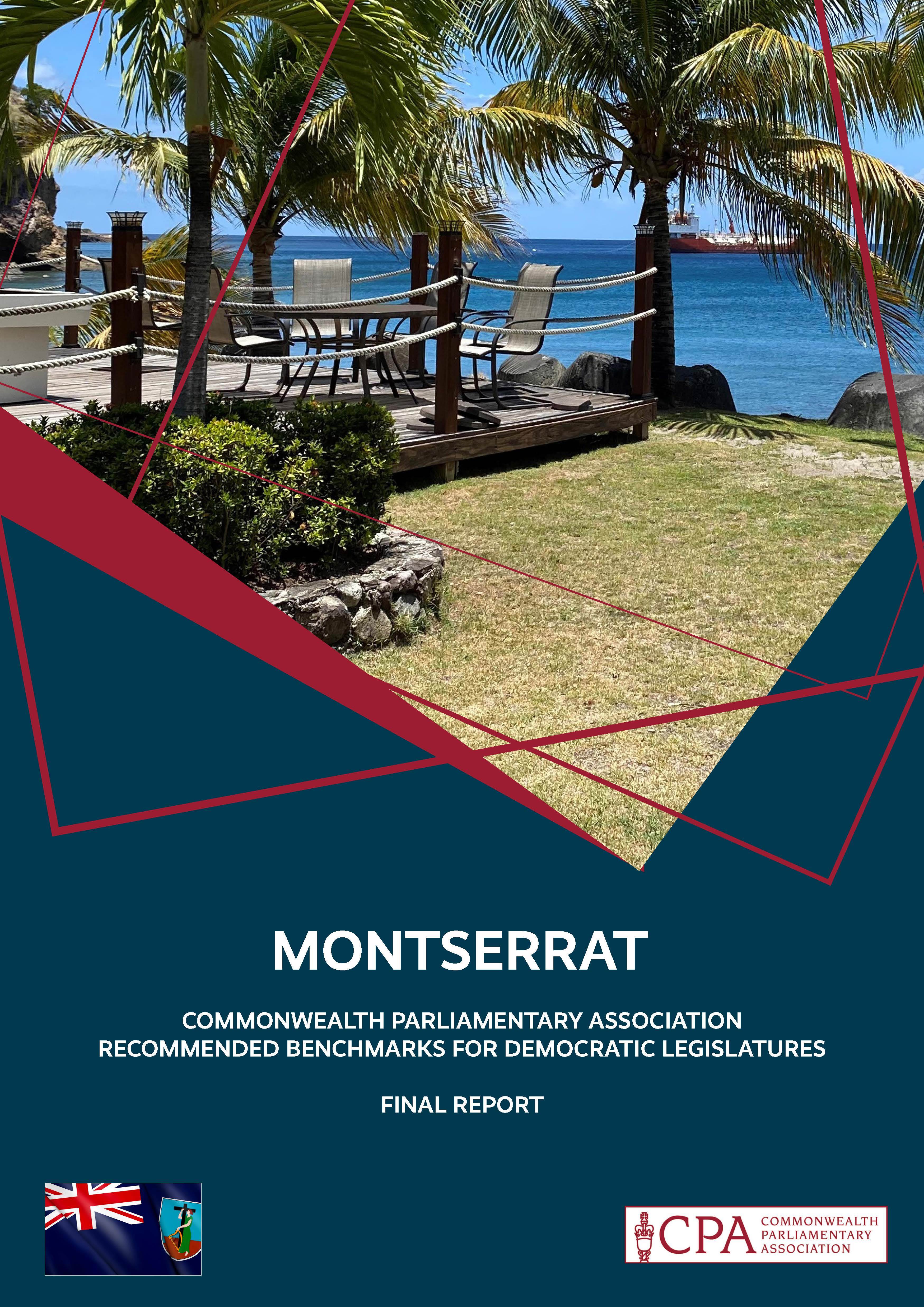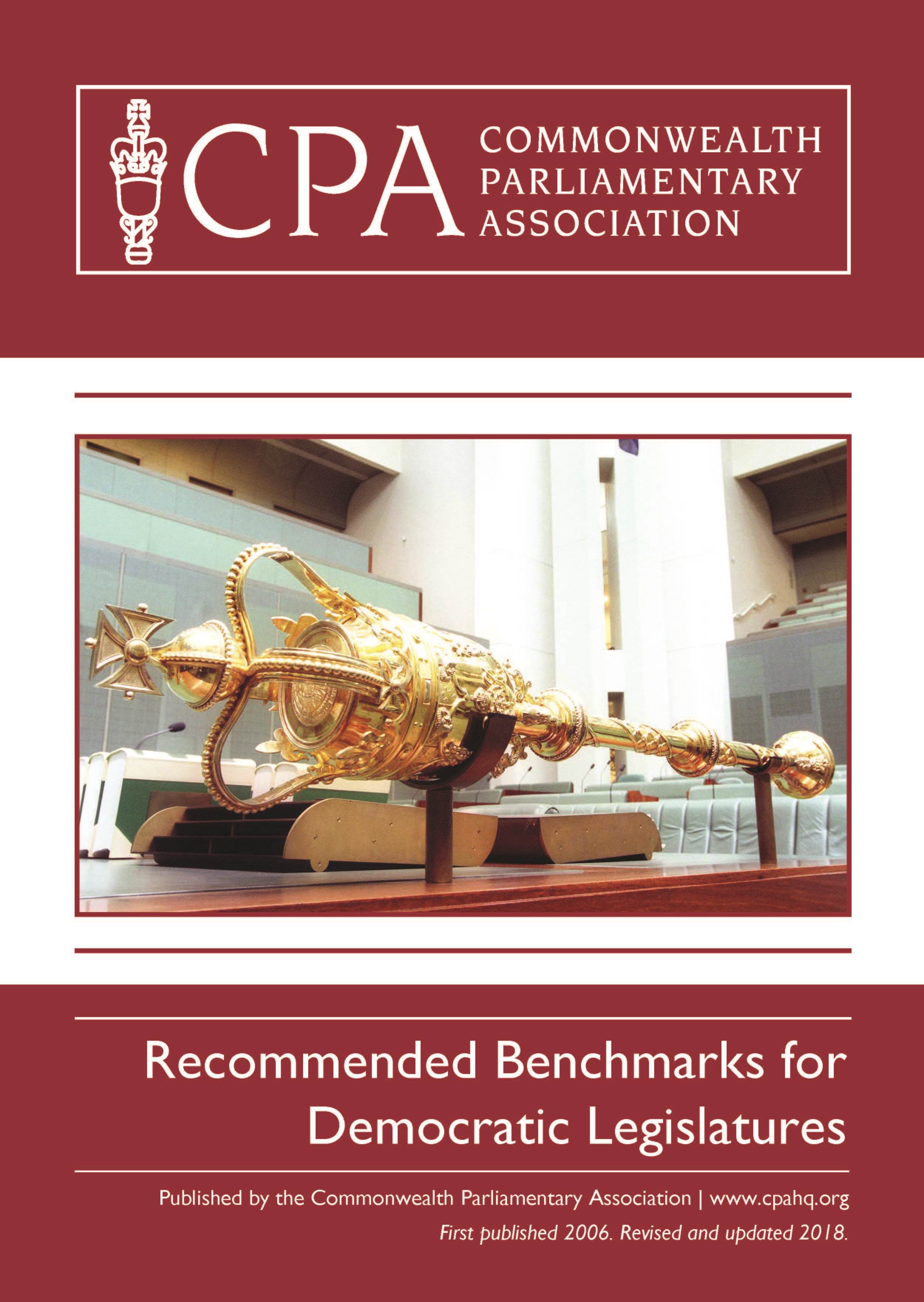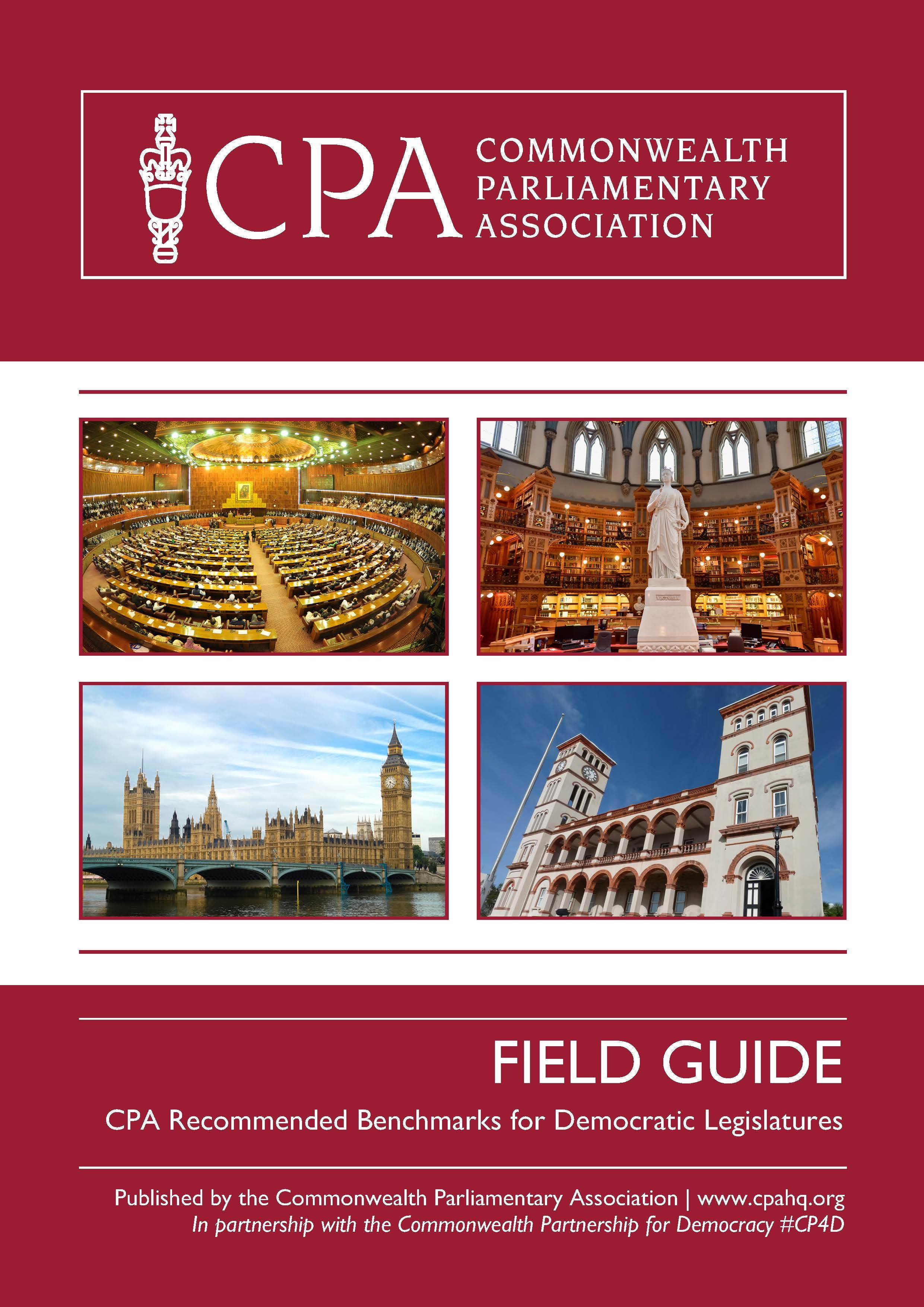
Benchmark Assessments and Outcomes
Since the updating of the CPA Benchmarks for Democratic Legislatures in 2018, 40 Commonwealth Legislatures which make up the CPA have undertaken self-assessments. These include the following: Anguilla, Australian Capital Territory, Belize, Botswana, Cayman Islands, Eastern Cape, Fiji, The Gambia, Ghana, Grenada, Isle of Man, Jamaica, Jersey, Kenya, Kiribati, KwaZulu-Natal, Lesotho, Malaysia, Malawi, Maldives, Montserrat, Namibia, Niue, Pakistan, Queensland, Samoa, Seychelles, Sierra Leone, Solomon Islands, South Africa, Sri Lanka, St Lucia, St Helena, St Kitts and Nevis, Tanzania, Tobago, Tonga, Uganda, Queensland and Western Cape.
Prior to 2018, the following jurisdictions undertook self-assessments. These are: Bangladesh, Barbados, Bermuda, Bougainville, Canada, Cayman Islands, Guyana, Jamaica, Kiribati, Mauritius, Nauru, Niue, South Australia, Sri Lanka, Trinidad & Tobago, Tuvalu, Zambia.
It is important to stress that this number maybe higher, as Legislatures are not under any obligation to report publicly that they have undertaken an assessment against the CPA Benchmarks.
Furthermore, in the case of the Australian Capital Territory for example, some Legislatures have undertaken an assessment on more than one occasion (ACT have done theirs three times - as at 2023).
Click here to read the Outcomes Reports from the self-assessments taken against the CPA Benchmarks.
As well as the number of assessments undertaken using the CPA Benchmarks, it is far more important to highlight the outcomes from these assessments. Legislatures chose to do them for a variety of reasons, for example:
- Legacy reporting/recording: Taking a snapshot of Parliament for parliamentary records.
- Review/reporting: Used for its annual parliamentary review, strategy, annual reporting or SDG reporting.
- Reform: Assessment to identify areas for improvement (often linked to the TAP)
- Comparison/validation: Assess whether Legislatures align with international democratic standards and to identify areas of best practice.
- Stakeholder influence: Publicly highlighting known critical weaknesses to get broader parliamentary and governmental buy-in for reforms.
Read below some of the case studies about CPA Branches who have conducted a CPA Benchmarks assessment
Australian Capital Territory
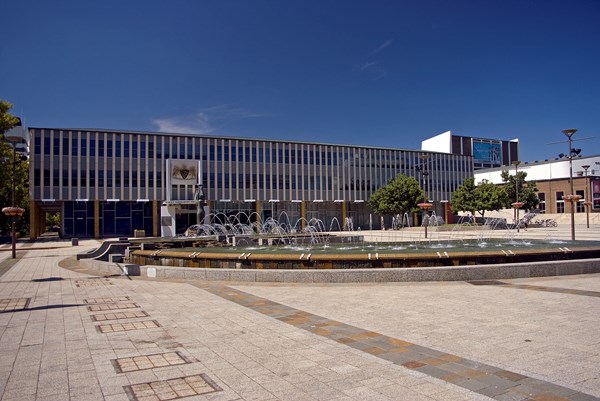
Through the leadership of its Clerk, who is himself experienced in evaluating parliamentary practice, the Legislative Assembly of the ACT has undertaken self-assessments using both the 2006 and 2018 Benchmarks, in addition to their annual review against the Latimer House Principles, with the latter taking place in 2019.
Instead of seeking support from a CPA consultant, they requested an external review to validate the findings from a recognised scholar at the Australian National University.
The review report facilitated two key outcomes:
- In the 2018 assessment it was noted that, whilst all reports of the Auditor-General were automatically referred to the Standing Committee on Public Accounts, the committee only reported on three of the 41 reports that had been referred to it. An Assembly committee, noting this shortfall, recommended that the resolution establishing the Standing Committee of Public Accounts in the next Assembly (i.e., 2020-2024) circumscribe its core role in inquiring and reporting on reports of the Auditor-General. In December 2020, the Assembly passed a resolution stipulating that the Public Accounts Committee’s only role is to examine Auditor-General reports. To enable the committee to focus on this, other elements of its terms of reference have now been removed.
- Up until 2020, there was no requirement for legislation to be referred to a policy committee for inquiry and report, so this Benchmark had not been met. In December 2020, as a consequence of both a recommendation of an Assembly committee and an external review of the Latimer House Principles, drawing attention to the Benchmark’s shortfall, the Assembly amended its practice. The resolution establishing general purpose standing committees now sets out that when bills are introduced to the Assembly, they are automatically referred to the relevant committee for inquiry and report. In addition, the legislature reviews its standing orders every four years whilst keeping in mind those Benchmarks which were not met.
The 2018 CPA Benchmarks Report for the Australian Capital Territory Legislature can be found here.
Isle of Man
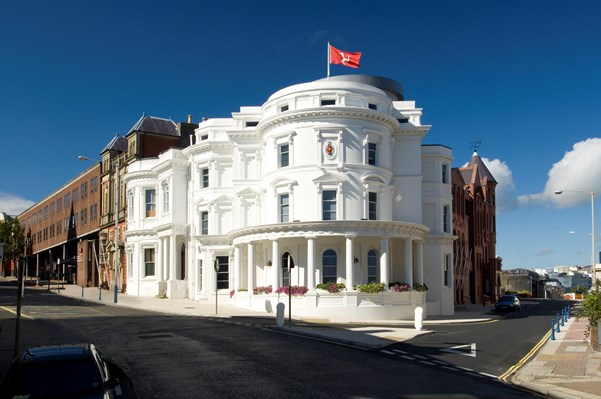
Tynwald, the Legislature of the Isle of Man, conducted its own self-assessment in 2019 using the updated Benchmarks, following the same methodological approach it had employed on the old Benchmarks in 2011. The Legislature set up an expert panel consisting of the Speaker, Former President, two serving Members and one academic to discuss and review Tynwald’s performance against the CPA Benchmarks (in so far as they applied to the Legislature, being a tricameral parliamentary system).
The previous report had been successful in driving institutional reform, including creating the position of the Auditor General for the Isle of Man, a post which had been vacant over the past 20 years (and was finally filled in 2023). It also started a helpful debate on the composition on the Upper Chamber, which was later annexed to the report of the Executive Committee.
The CPA Benchmarks Report for the Isle of Man can be found here.
Belize
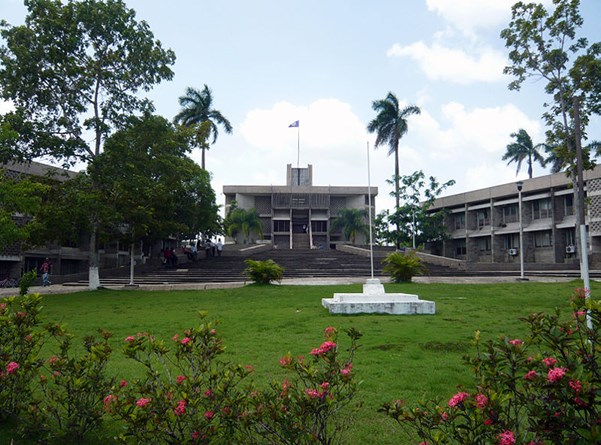
Similarly, the Speaker of the House of Representatives in Belize approached the CPA about an assessment in 2019 with a clear reform agenda. According to internal stakeholders, the assessment report would help them drive the reforms needed for Parliament to improve its practice. As in Anguilla, the Speaker, President of the Senate, Clerks and Deputy Presiding Officers were part of the entire process, including sitting in interviews. Belize also signed an MoU with the CPA on the recommendations from the assessment, following in Anguilla’s footsteps as the second Legislature to join the TAP.
While all areas of support have been delivered by the CPA, some of the products developed have not officially been launched since they still need internal approval. This includes the newly developed Code of Conduct and Standing Orders. A key issue here was that both Houses need their own individual documents and agreement from both Houses is needed before the documents can be laid on the table. Importantly, the CPA findings and recommendations have helped Belize articulate to other donors and parliamentary strengthening organisations, including UNDP and ParlAmericas, its priority needs for development (they have shared the report with them). The Speaker and Clerk also said that they will continue to use a version of the assessment methodology for future parliamentary review and planning exercises.
Uganda
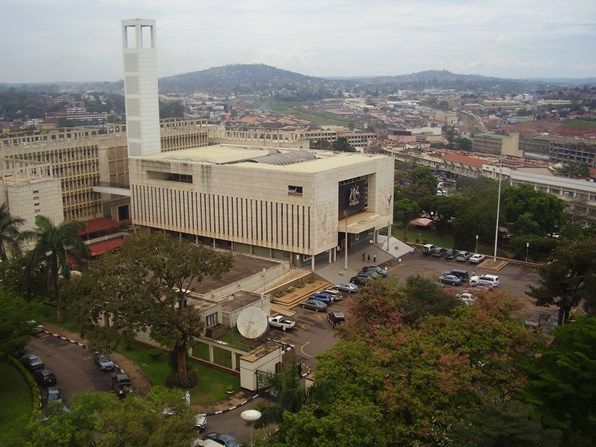
In 2019, as part of the CP4D programme, the CPA advised the Uganda Parliament on using the CPA Benchmarks for their annual parliamentary strategy review and national SDG reporting to the government (this being an outcome in itself). It should be noted that Uganda has a well-established internal parliamentary evaluation culture, with its own M&E department and regular, annual reviews against its strategy.
This was the first time Uganda had used the CPA Benchmarks. The recommendations in the report were reviewed by the parliamentary board (chaired by the Speaker). As a result of the 2019 review, regarding its public consultations and outreach, the Parliament has developed an app for citizens to be able to access parliamentary bill processes and submit public petitions. Further progress against the recommendations is tracked by the internal M&E department.
Kenya
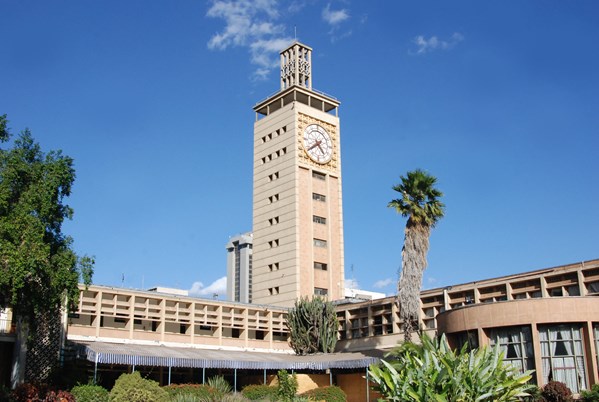
According to updates from the Parliament of Kenya to the CPA Secretary-General in 2021 and mid-2023, Parliament has since reviewed and taken on board some of the recommendations from the 2019 assessment. These include the translation of the House Standing Orders into Kiswahili in November 2020 (national language of Kenya and spoken by the majority of the people). This was done to align not only with the CPA Benchmarks assessment, but also follows Article 118 of the Constitution of Kenya, which requires Parliament to facilitate public participation and involvement in its legislative business.
The report also notes that “Parliament also has a key role to play in terms of supporting continuous civic education and improving public knowledge and support of the Legislature.” As such, the National Assembly reported in 2021 that it was now publishing a regular e-newsletter on the activities of the House in a digestible, accessible format, targeted at the wider public.
In addition, in 2023, Parliament has continued to increase its public outreach offers following the recommendations from the CPA assessment, including more livestreams of House proceedings on YouTube (next to a live TV broadcast) and improvements to the parliamentary website.
The CPA Benchmarks Report for the Parliament of Kenya can be found here.
Anguilla
When the House of Assembly of Anguilla approached the CPA in 2020, they already had an expectation that the assessment (and the CPA) would help them identify areas of parliamentary practice that needed reform to comply with international best practice. Parliamentary stakeholders had previously taken part in the McGill University course on parliamentary governance, where they had found out about the CPA Benchmarks.
The assessment was conducted by CPA HQ staff, with Anguilla parliamentary staff involved throughout the process. As a primary outcome, the CPA and the House signed an MoU on a comprehensive support programme around six of the identified recommendations. To date, all of the action points in the MoU have been addressed, with the help of CPA HQ technical expert advice.
Most significantly, the House was able to establish a Code of Conduct and set up a Parliamentary Reform Committee (currently the Administration Committee) to continue driving development of parliamentary best practice. While the House had an idea of the reforms needed even ahead of the CPA assessment report being tabled, it recognised that it would not have been able to make these reforms so quickly without the CPA’s support. In a small Legislature like Anguilla, these types of changes can directly have an impact on the electorate, as improvements to parliamentary practice can quickly be felt in parliamentary performance and legislating/legislation.
The CPA Benchmark Report for the Anguilla House of Assembly can be found here.
Montserrat
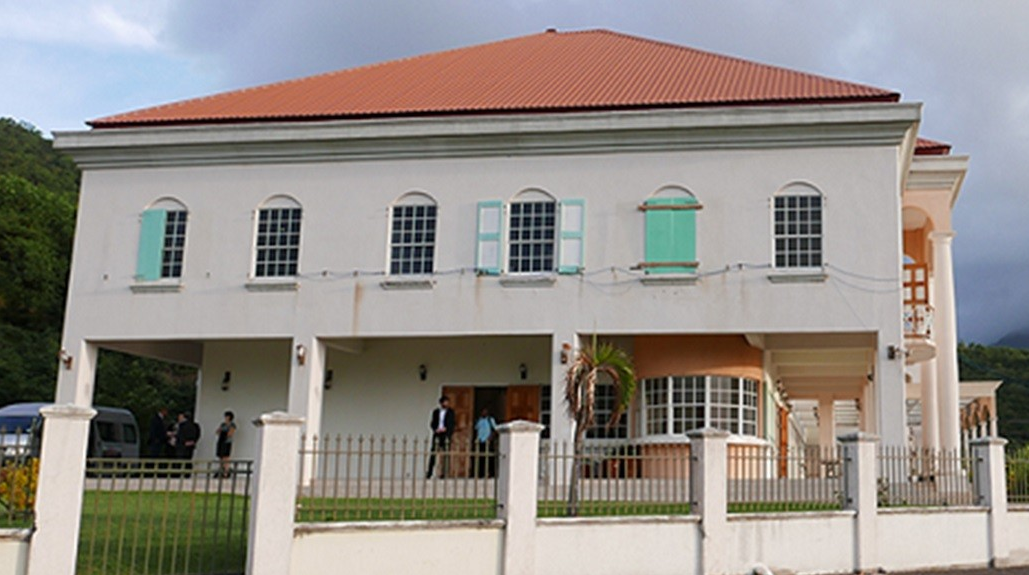
The Legislative Assembly of Montserrat has recently passed the Powers, Privileges and Immunities Bill which provides protections to the Members and staff of the Legislature in the exercise of their duties.
The new regulations were one of a number of recommendations that arose from a self-assessment of the Legislative Assembly against the CPA's Recommended Benchmarks for Democratic Legislatures undertaken in 2022. In total, 24 recommendations were proposed to strengthen the governance, independence and administration of Montserrat, one of the smallest Legislatures in the Commonwealth.
Other activities include an evaluation of the Standing Orders and an Administrative review. In addition, the Montserrat Legislature was able to benefit from funding for equipment that allows the proceedings of the Chamber to be ‘live’ streamed for benefit of the general public.
The funding was granted through the Commonwealth Parliamentarians with Disabilities (CPwD) Capital Investment Fund which aims to raise the accessibility of CPA member Parliaments.

